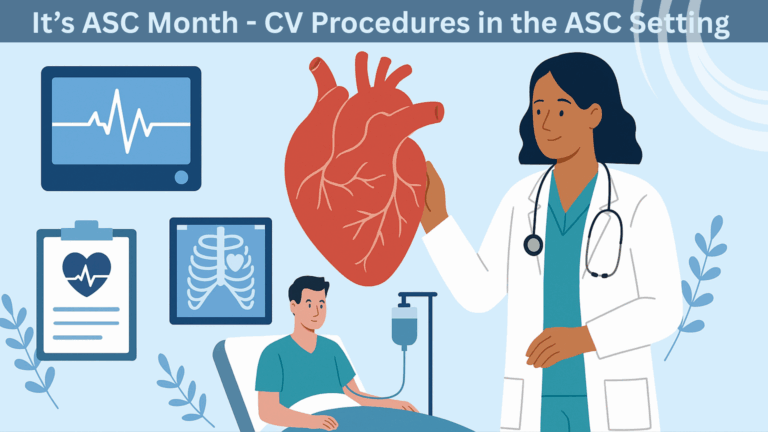Ambulatory Surgery Center and Hospital Joint Ventures
A global pandemic and economic downturn did not stop the proliferation of joint ventures between ambulatory surgery centers (ASCs) and hospitals. The trend continues as federal regulators expand on the types of procedures that can be performed in the ambulatory setting.
Hospitals recognize the need for a surgery center strategy because they see private payers and Medicare pushing cases to the lowest-cost provider. Hospitals want to be included in the revenue of ASC cases, which can be done less expensively.
From a regulatory perspective, joint ventures show advantages in states which require a Certificate of Need for establishing or expanding healthcare facilities. If a group of surgeons want to build a surgery center, they may establish a “marriage” (joint venture) with the community hospital. Working together may eliminate challenges to the development of the ASC. A team approach can be far more advantageous in establishing the ASC.
ASC National Merger Trends
Joint ventures between ASCs and hospitals are on the rise. The number of hospitals and health systems considering increasing their investments in ASCs has risen significantly over the past few years.
Most ASCs remain independent, but this leaves possibilities open for mergers. Ongoing trends include a shift of higher acuity procedures from the inpatient setting to the outpatient setting, increased Medicare reimbursement rates, consolidation, and increased activity by hospitals seeking to grow their ambulatory footprint with a particular focus on ASCs.
As ASCs face new volume, technology, and transparency, more hospitals will be looking to buy into ASC facilities. Hospitals want to pursue the ambulatory surgery environment because of its reduced cost, higher productivity, efficiency, and better patient experience. Hospitals realize that joining into a “marriage” with the freestanding ASC market will be necessary for the hospital’s future growth. They will need to embrace the ASC to maintain their market presence.
Perhaps an even greater motivator is pressure from payers, especially now, as the Centers for Medicare & Medicaid Services (CMS) continues to reduce its inpatient-only list and significantly expand their ambulatory list. If CMS says certain procedures can be done in an ambulatory setting, other payers will undoubtedly follow suit because they don’t want to pay hospital rates.
Hospitals are often the pursuer in these relationships. For ASCs, one key motivator stems from the aging of the partners, which typically limits their lifespan. When this happens, the practice starts diminishing and begins looking for a buyout with a hospital.
When a surgeon buys into an ASC, there’s usually an initial number of shares. As soon as the ASC starts making money, those shares skyrocket. This offers a return on investment, but prices the shares out of the market for future physicians to buy in. As an example, let’s say a share was $15,000. Within a year, that share is now $75,000. The share price has gotten so high, no other surgeon can get in. Therefore, an ASC often has a limited life expectancy.
Hospitals don’t always like these kinds of affiliations because they must share revenue with the physicians. Despite the resistance on both sides, more hospitals will continue to share ownership with ASCs because the market demands it.
Weighing the pros and cons of an ASC-Hospital Partnership
From a financial perspective, there’s a lot a hospital can offer an ASC, including capital, health information technology (IT) expertise, and staff support.
Because of new CPT codes that have been approved for procedures performed in outpatient settings, a lot of new technologies and specialties will be moving to ASCs. Various specialties will require expensive new technologies such as robots, radiology suites, as well as specialty staff. This is an advantage for hospitals, as they typically have deep pockets, and have the technical staff they can lend to ASCs to help them get started.
ASCs that partner with hospitals should also see a significant increase in reimbursement, especially if the hospital has majority ownership. It is totally in the ASC’s interest to partner with them.
ASCs can also lean on the Hospitals to provide support if equipment fails. Purchasing rates with a hospital can be much more lucrative in terms of savings on supplies. So, there are a lot of advantages to partnership for an ASC.
A joint venture with a hospital may provide financial security, but ASC leaders should be cognizant of the hospital’s culture. Hospitals by nature are bureaucratic. The typical ASC is more closely structured, with a lot of cross-training and collaboration. The pace is faster in an ASC than in a hospital.
The patients are usually elective, and the patients expect great care. When hospitals dip into managing frontline ASC operations, this can affect the uniqueness and culture of the ASC. A hospital that tries to manage its ASC like a hospital will typically create an environment that’s not very good for the ASC.

What makes a “good marriage”?
Sometimes these ventures don’t end up working out. ASCs and hospitals need to do their homework. They need to make sure the hospital’s and ASC’s cultures are closely aligned, and their values are the same.
Managing a surgery center is completely different from managing a hospital, as mentioned earlier. It’s a different mindset. Hospitals need to either rely on a management company to help them run things or learn how to develop and run an efficient surgery center. If you think of the hospital cost model and how different it is from an ASC—it’s very different, so you must run it as efficiently as possible.
Many factors are at play for the hospital in a joint venture. Hospitals should consider whether it is in their best interest to develop this themselves or hire someone who knows how to do this and set up a model that works, such as a partner who does this every day.
ASCs interested in such a collaboration should decide whether they want to enter a joint venture with a hospital alone or with a management company. The advantage of joint venturing with a partner consisting of a hospital and management company is that with a management company, their focus is solely on operating and running surgery centers.
The message ASCs may want to convey to hospitals is for the hospital to help them with money and technology, but let the ASC keep their individuality.
Hospitals shouldn’t strive for 100% ownership, instead, the leadership model should allow the hospital a seat or two on the board of directors. Hospitals should provide support wherever needed, but if the ASC is running well, the hospital should let it continue to run well.
By acknowledging and embracing their differences, and setting healthy parameters on ownership, hospitals and ASCs can develop a profitable relationship. But it’s got to be a good marriage for both.
Written by Daniel Quance, Account Manager, Corazon, Inc.

 company
company 
 (412) 364-8200
(412) 364-8200





























